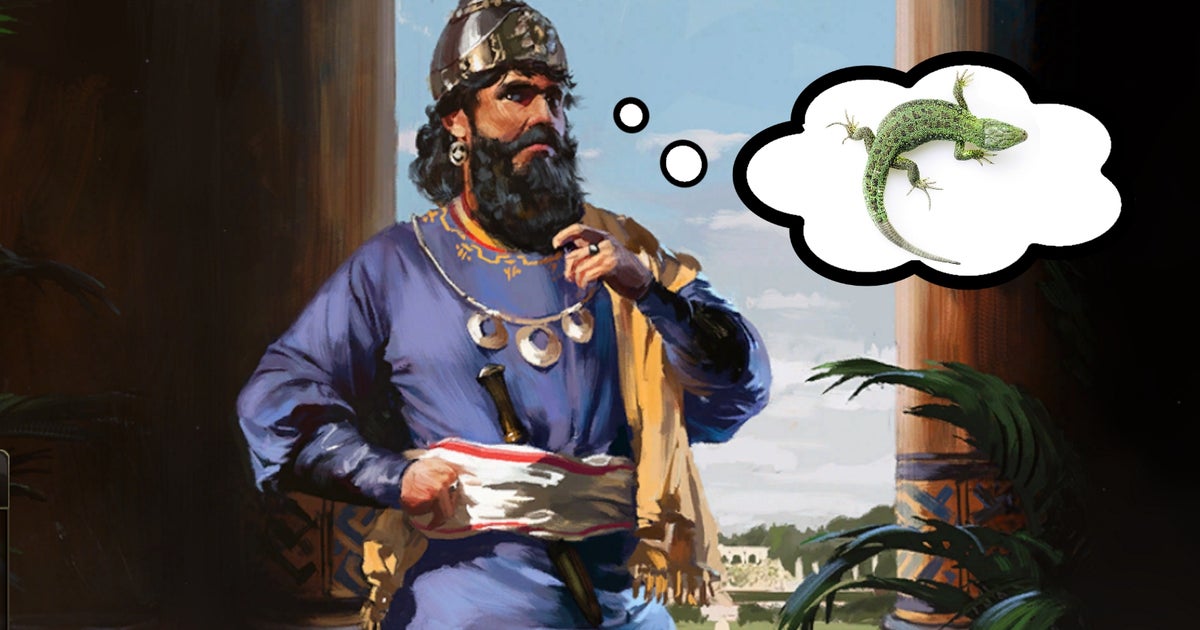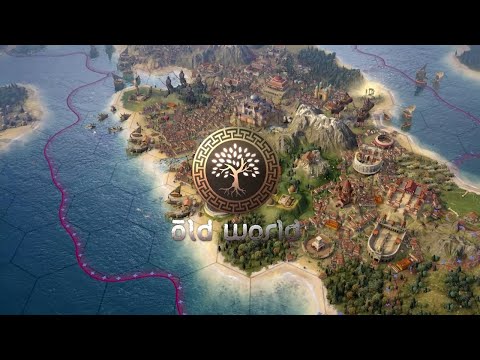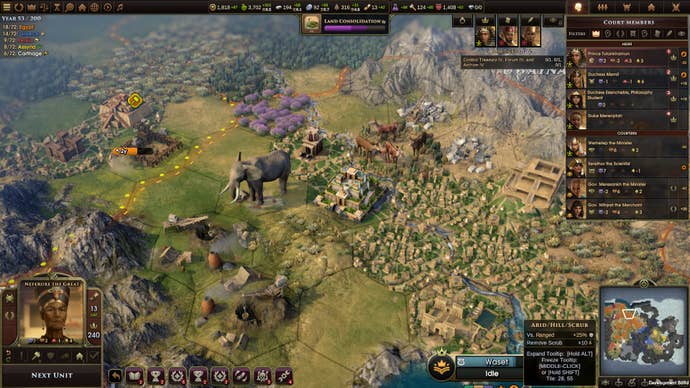## From Humble Beginnings to Galactic Empires: Deconstructing a Game Dev’s Library
Ever wonder what fuels the creative fire behind your favorite strategy games?
Today, we’re peering into the mind of Soren Johnson, the mastermind behind critically acclaimed titles like Civilization IV, Offworld Trading Company, and the innovative Old World. We’re diving deep into his bookshelf, exploring the diverse literary landscape that shapes his vision for complex, engaging, and thought-provoking gameplay.
The Web of Resource Management

In Old World, resources are the lifeblood of your empire. From classic staples like stone and wood, which are needed to build improvements like mines, shrines, and wonders in the hexes around your settlements, to esoteric resources like legitimacy, civics, training, and growth, each resource plays a crucial role in the game’s progression.
The game’s focus on resource management is reminiscent of Offworld Trading Company, Mohawk’s debut game about economic domination of the solar system. In Old World, resource management is not just about accumulating resources but also about making beneficial trades. Every decision you make will have a tangible benefit to one resource total, to the detriment of another, and it’s up to you to make sure you’re making a beneficial trade each time.

The Orders System and Character Importance
The Invisible Hand of Orders
In most 4X games, you move each unit once each turn, and that’s that. In Old World, you have a pool of orders (replenished at a variable rate each turn depending on parameters such as your ruler’s legitimacy, the technologies in play, and dozens more), which you can split at will between your units.
You might choose to blurt all your orders to a single scout, moving them three or four moves across the landscape until they hit their fatigue limit, or you might focus your whole order pool on a few military units fighting a war, or you might go hard on workers building improvements. This novel approach to breaking a tradition offers flexibility while keeping turn times relatively snappy.
The Character-Driven Approach
Another big divergence from 4X staples is the importance of character. In Old World, you’re not playing as a single immortal ruler or as a vaguely personified nation, but as an actual living person who gets older with every year-long turn, and who will eventually die.
reminds me heavily of Paradox’s Crusader Kings games, is the importance of character. Your rulers must decide on lifetime ambitions, such as “build seven cities” or “eat one million crisps”. Completing an ambition doesn’t just further your progress on the victory score track. It also increases your “legitimacy” statistic, which as well as making you generally more effective, confers a major boost to another stat: orders.
Embracing Old World’s Uniqueness
The Tuatara Effect
It is extremely difficult for a 4X game to look like anything other than a generic 4X game – or specifically, the genre-definer Civilization and its scions – at first glance. Old World, as Gamestanza expressed beautifully in its early access review, is no exception.
But once you get to grips with it, you soon find this is no ordinary lizard. Much like the tuatara with its ultra-weird subdermal peeper, Old World conceals a whole different nature.
Learning the Game’s Rhythm
For my first couple of games, even having played an early build some while ago, I didn’t have a clue. There were about a billion different resources, and I was constantly having to make decisions about which to accumulate most of, despite having little idea of their comparative values.
In addition, there was a sort of Crusader Kings business going on, with vengeful aunts, hunting trips gone awry, and a whole royal personal life to manage on behalf of my ruler. Honestly, I’d advise you not to get invested in your first few goes at Old World. Don’t try to win, as you’ll only get confused.
Just dick about, making decisions based entirely on intuition, and concentrate on getting an instinct for what happens as a result of them. Sooner or later, the game will click for you – you’ll understand how the resources behave in the longer term, and how you can take advantage of them to force your way to the situations you want to be in.
Conclusion
So, there you have it: a peek into the mind of a game design maestro. Soren Johnson, the architect of Civilization IV’s complex world-building and the strategic mastermind behind Old World and Offworld Trading Company, reveals a love for grand strategy games that transcends mere entertainment. For him, these games are vessels for exploring societal intricacies, dissecting economic systems, and contemplating the very nature of power.
